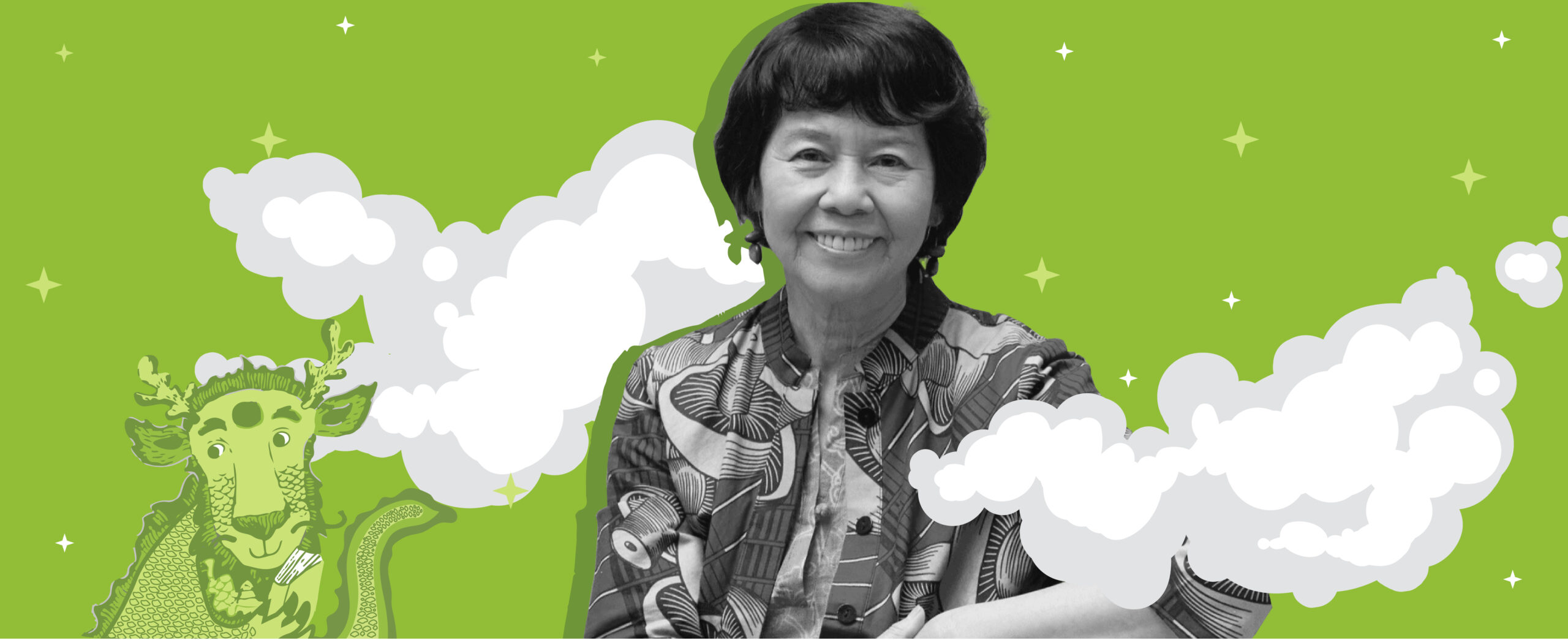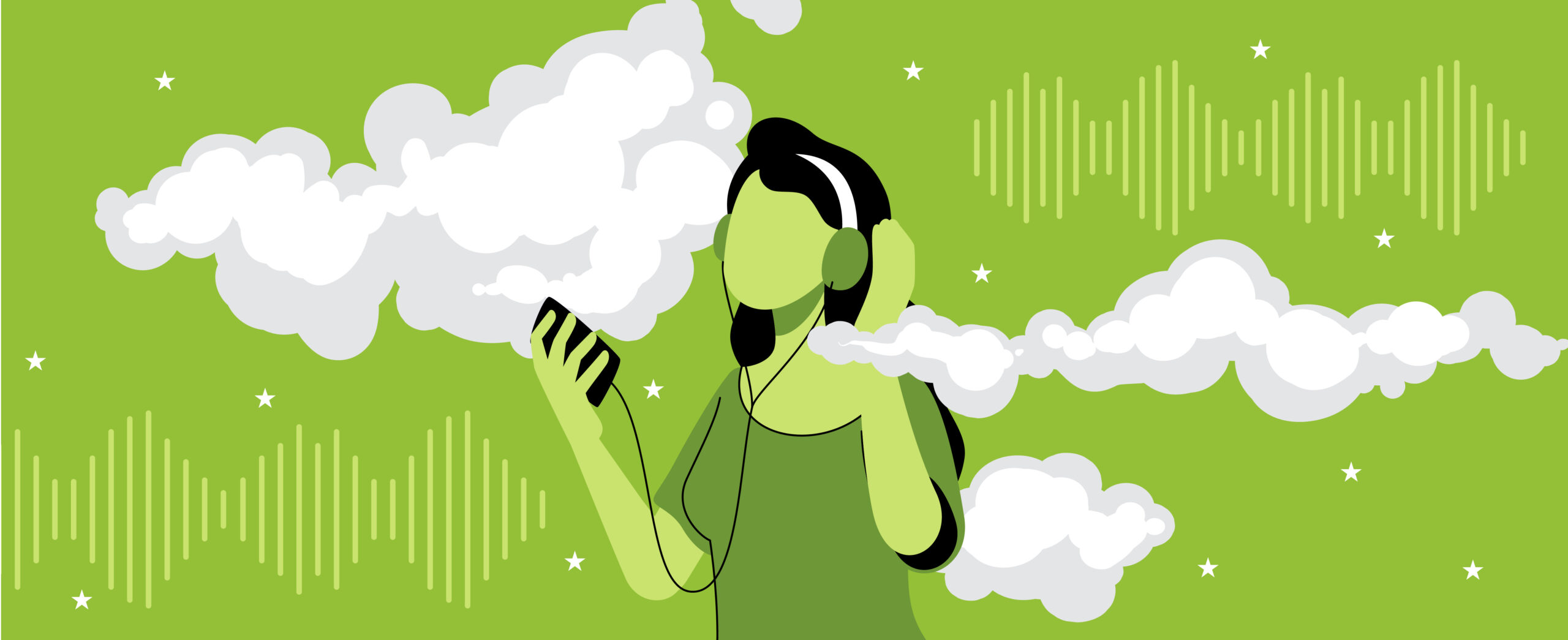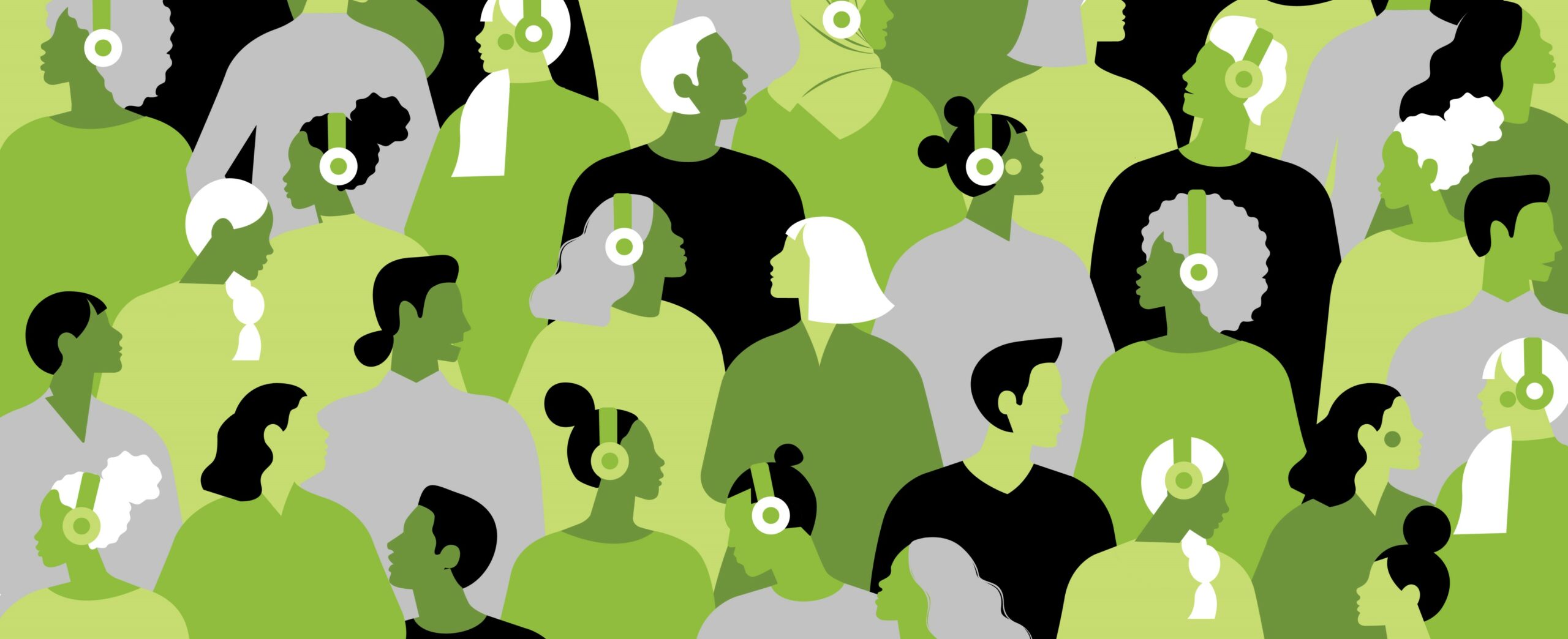
Of Dreams And Dragons
Gabrielle Wang on her journey to becoming Australian Children’s Laureate 2022
There’s a Chinese proverb to suit most occasions. And when introducing the newly minted Australian Children’s Laureate, there’s one that fits the bill nicely: Nìjìng chū réncái … ‘Adversity gives birth to genius.’
Not that you would guess it from writer and illustrator Gabrielle Wang’s CV, but she has had to confront a fair run of hurdles on her path to literary greatness. With over thirty books under her belt, which have sold over 170,000 copies and attracted a swag of awards, it’s hard to believe that she left high school marked as the one least likely to succeed.
She laughs at the suggestion that she’s a poster child for struggling students. ‘Oh, my schoolwork was really, really poor,’ she says. ‘I thought I was dumb.’
As for her new status as spokesperson for children’s literature Australia-wide, Gabrielle has just one thing to say. ‘I really can’t believe it.’
When the call came, she was speechless. ‘It was so funny,’ she says. ‘I make a donation to the Australian Children’s Laureate Foundation (ACLF) every year, so when they left me a message, I thought they might have been asking for more money!’
‘I can’t remember what I said to them, I was so shocked. But when I hung up, all I could keep saying was, “Me? Australian Children’s Laureate? Me? There must be some mistake.” I never thought I could be worthy of such an incredible honour.’
Although she might have been daunted at first, with a family pedigree crammed with high achievers, she was always going to accept.
Gabrielle’s parents established a successful chain of furniture stores, and her father, David Wang, was the first Chinese–Australian nominated to local government when he was elected to the Melbourne City Council in 1969. These days, her brother is CEO of the Chinese Museum and her sister is a successful television producer.
‘I just thought it was my family duty,’ she says.
The girl in the mirror
‘Laureate’ is a term reserved for those who are recognised as the best in their field. The term comes from ancient Greece, where sprigs of laurel were fashioned into wreaths to be placed on the heads of poets, athletes and heroes.
To those who know Gabrielle’s work, there could be no more deserving recipient. But Gabrielle is still unconvinced. ‘I guess you have to know my past and all the insecurities and failures that I had,’ she says.
Melbourne’s suburbs were not kind to young Gabrielle. ‘When I was little, I hated being Chinese because we stood out,’ she says. ‘There weren’t many Chinese families where we lived. If I’d had friends who were Chinese, I don’t think I would have felt that alienation.’
A photograph of a teenaged Gabrielle with her parents and siblings highlights her unusual childhood. The family is at the official opening of a new David Wang Emporium store. And they’re flanked by a smiling Arthur Calwell and his wife.
Calwell is best known as the federal immigration minister who was the staunchest defender of the White Australia Policy. He was also one of David and Mabel Wang’s closest friends, and the man who nominated David for his position on the Melbourne City Council.
Growing up in a community that didn’t include any other people who resembled the face she saw in the mirror was a confronting experience for Gabrielle. ‘I’d forget what I looked like. I felt white on the inside,’ she says. ‘I would pass a shop window and see my reflection, and I’d think “Oh my God! I’m Chinese!”’
‘I remember one time at a party when I was about 16, and I’d been dancing with a boy. Then I went to the bathroom to wash my hands, and I looked at myself and thought, “I’m Chinese … Why is he dancing with me?”’
This sense of alienation was made worse by the fact that she rarely encountered any Chinese or Asian characters in the books she read or the films she watched. Those that did appear were cruel caricatures.
‘I never saw myself represented in books,’ she says. ‘As for the Asian characters on TV, or in the movies, they were always either demons, or comedic, like Mickey Rooney in Breakfast at Tiffany’s … that guy dressed up like a Japanese man, with buck teeth and slanty eyes.’
‘When they do things like that, even when I see picture books with the characters drawn with slanty eyes, it’s hurtful. It’s something people would do to me in the street – pull their eyes into slants and say, “Ching Chong Chinese”.’
It’s wishful thinking to believe that racism like this no longer exists in Australia, Gabrielle says. ‘These days, there are still Asian people being bashed up. It’s still happening.’
‘I was shocked when I did a school visit recently. In areas where there were mostly Asian children in schools, these children would say, “We’re ashamed of being Asian.” Can you imagine, in this day and age? Of course, it all started after Donald Trump called COVID “the China virus”.’
New Gold Mountain
The irony in the racism Gabrielle faced when she was growing up is that her mother’s family had been in Australia for four generations when Gabrielle was born, far longer than many other non-Indigenous Australians.
‘My great-grandfather came out during the gold rush when he was eighteen,’ she says. ‘In those days, the village would invest in the most able-bodied young man from the village and send them to Australia so they could work here and send money back home.’
Ah Kew Chen arrived in the Victorian goldfields in 1864. At that time, Chinese migrants made up more than three per cent of the Australian population. The Chinese immigrants called the Australian gold fields Xin Jin Shan, or ‘New Gold Mountain.’ California, where gold had been discovered a decade earlier, was known as ‘Old Gold Mountain.’
When the Victorian gold fields began to dry up, Chen travelled north to the bustling paddle-steamer port of Wahgunyah on the Murray River, where he opened a store selling produce and Chinese wares. Tapping into an entrepreneurial spirit, he later recruited fellow Chinese men and set them to work with bullock trains to clear land and sink dams for new settlers across northern Victoria.
‘My great-grandfather was considered a pioneer,’ Gabrielle says. ‘There’s a plaque in the centre of town dedicated to him, along with the man who discovered the vein of gold that brought people to the area, and Tommy McCrae, who was an amazing Aboriginal painter who also lived in Wahgunyah.’
Although ‘Jimmy,’ as Gabrielle’s great-grandfather became known, was by now a fully-fledged local, he still turned to China to find a wife. An arranged marriage brought a young bride, Lum Gum, to Australia in 1887.
‘She was accompanied by her uncle, and when they got married there was a huge celebration that was written up in the local newspaper,’ Gabrielle explains.
The renewed relationship with China meant that Gabrielle’s family kept their connection with their homeland. ‘They could have just stayed here and become quite Australianised,’ she says. ‘But my great-grandfather and great-grandmother decided to take their children to China to educate them and hold on to their connection with their Chinese heritage.’
That connection became even stronger when Gabrielle’s mother, Mabel, met the man who would become her husband. ‘During the Second World War, my father was sent out from China as a liaison officer to work at General MacArthur’s headquarters in Brisbane. China, America and Australia were all allies back then,’ she says.
‘My father was just 22 years old at the time, and his English was terrible.’ Gabrielle laughs. ‘The only word he could say was “WC”.’
Finding her roots
As a young adult, China offered what Gabrielle thought may be a solution to her identity crisis. ‘I didn’t feel like I belonged in Australia, so I began to think, well, maybe I belong in China. So, I went there in 1977.’
‘It was a very emotional experience. Many children of migrants say that the connection with the father, or mother, country is very strong. It certainly was for me. So, people say, “I’m going back to Italy,” or, “I’m going back to Greece,” even though they’ve never been there.’
Because her parents both spoke different dialects and couldn’t communicate in Chinese, Gabrielle grew up in an English-speaking household. She didn’t begin to speak the language of her forbears until she was an adult.
‘I had gotten over hating being Chinese by then and started to come around to the fact that you can’t hide who you are,’ she says. ‘So, I decided, “Well, I’m Chinese, so maybe I should go and learn the language.”’
After a time studying the language at university, Gabrielle decided to put her newfound knowledge into practice. ‘I thought I’d just go and see if I could improve my language by living in Taiwan for three months. Well, I stayed away for five years. Then I spent two years in China, studying Chinese painting.’
That was where Gabrielle discovered a much more benign explanation for what she had always assumed was her parents’ indifference to her. ‘Traditional Chinese parents like my parents, they never say anything good about you. They never praise you,’ she recalls.
‘I remember going to a schoolfriend’s place to stay when I was young, and her mother came over to kiss me goodnight … and I cried myself to sleep. Because my parents had never done that to me, I thought it meant they didn’t love me.’
‘It was only after I lived in China and Taiwan that I realised it was a cultural thing.’
Her confidence wasn’t helped by her experiences at school, either. ‘I was a really, really poor student. The way of learning at school, even today, doesn’t suit me. So, I failed year 12. I had to do it again. I also failed final year graphic design and had to repeat it.’
Gabrielle graduated from the Royal Melbourne Institute of Technology and worked as a graphic designer for several years. So, a career as a book illustrator was always on the cards. But with her less than stellar academic results, writing was never the obvious career for Gabrielle.
Yet despite a string of rejection letters from publishers, she persisted. And it was thanks to the inspiration of a particularly vivid dream that she wrote the book that would make her name.
‘I was about eight years old in the dream, and I was walking down a narrow staircase in our home. There were people lining the sides of the stairs. And they were patting me on the back and saying, “Go out into the light”.’
‘Downstairs I could see the doorway that was brightly lit up. I walked down and went outside, into this crowd of people. I felt a great feeling of happiness and excitement, and at the front of the crowd, this huge Chinese dragon raised his head. I realized that all the people in the procession, including me, were part of the body of this dragon.’
‘When I woke up, I knew how significant the dream was to me. Chinese people call themselves the people of the dragon. My subconscious was telling me, “You’re Chinese. Be proud of it. Embrace it.”’
‘So that day, I started with this memory and changed it into a story. And by the end of that day, I had written a fictional story.’
That story became Gabrielle’s celebrated first book, The Garden of Empress Cassia. Nobody was more surprised by her success than Gabrielle herself. ‘I was so shocked by how it worked out, because as I said, I failed English … I failed many subjects.’
Today, Gabrielle is philosophical about her experiences. ‘If I hadn’t been through all this, I wouldn’t be a writer. And I certainly wouldn’t be the Australian Children’s Laureate, because there’d be nothing for me to write about.’
Imagine a Story
There’s one thing Gabrielle believes would have had a very positive impact on her childhood. ‘I wish audiobooks had been around,’ she says. ‘Because I was, and still really am, a poor reader. Before, I’d only read three books a year. I mean, that’s crazy. I only read audiobooks now.’
‘So, in my journey as laureate, I’ll be advocating audiobooks.’
It’s an important pillar of her mission as laureate. Once she overcame the initial shock at the phone call from the ACLF, Gabrielle knew exactly what her theme would be. ‘On my phone in the middle of the night, I had it all written out,’ she says. ‘My theme is: Imagine a Story.’
For Gabrielle, imagination is a place of solace. It’s where she’s transported when she’s listening to an audiobook. And Gabrielle is determined to introduce the magic of imagination to children experiencing the same alienation she felt.
‘That’s why I write my books about diverse characters and how they feel,’ she says. ‘I want to take children inside the head of a child who is different.’
‘If I can get one or two children to change their minds and go, “I’m proud to have more than one culture. I’m Australian, but I’m also something else,” I’ll be happy.’
Gabrielle is delighted to see Australia’s changing face today. ‘It used to be mostly white people you’d see in the streets. But now you see a wonderful array of colours,’ she laughs. ‘I don’t like the phrase, “people of colour”. Because it sounds like the default colour is white.’
And for those children struggling as she did, Gabrielle ends our interview with sage words of advice. ‘Sometimes I think that adversity can work for you if you’re strong enough. You can rise above that adversity and become someone better and stronger.’
Gabrielle Wang is living proof of exactly that.
Written by – https://meaghanwilsonanastasios.com/




